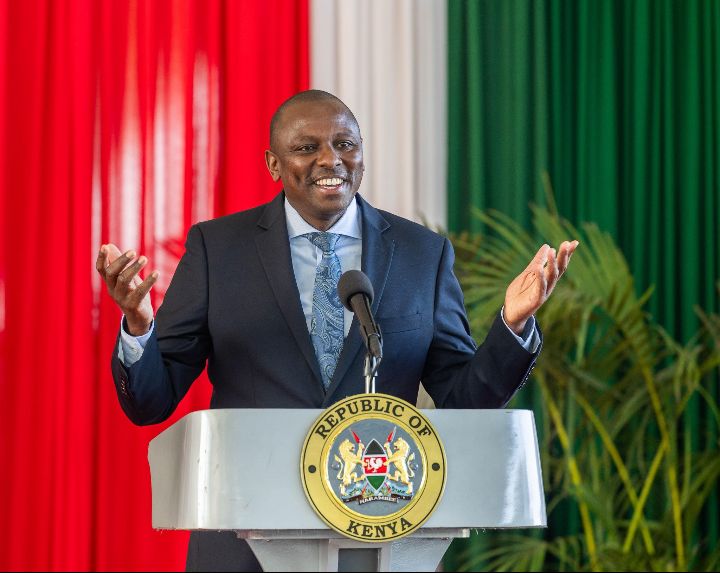
The ruling class is now bowing to the pressure of public outrage, following to the recent countrywide demonstrations that vandalised some of key constitutional institutions including parliament and judiciary
Protesters angered by the contagious bills being forced to people without their wishes are increasingly charging Gen-Zs to seek revenge to now their sponsors especially legislators allied to United Democratic Alliance
Today, Sunday 29th, National Assembly Majority Leader Kimani Ichungwah has been forced to withdraw the controversial land bill which was trying to amend the constitution through the backdoor
The government sought to bring annual levy on freehold land and also dilute the constitutional powers of the National Land Commission by transferring it’s powers to the lands Cabinet Secretary, was before the Lands Committee
Ichungwah sought to amend sic Lands Acts, the Registration of Documents Act, Land Control Act, Community Land Act, and the Sectional Properties Act.
The bill which was generated on June 13th, Ichungwah formally conveyed the government’s intentions by writing to the National Assembly Speaker Moses Wetangula, expressing hus desire to have the Bill withdrawn
“Having consulted with the relevant stakeholders, this is now to confirm that the majority party has withdrawn the Bill. Consequently, I request that the House Business Committee, be notified of the withdrawal of the bill and that no further consideration will be undertaken,” Part of the letter from Mr Ichungwah read.
The bill sought to transfer two major functions domiciled in the NLC, which is a constitutional body, charged with the responsibility of spearheading land reforms in the country
One of the critical functions which was to be removed from the commission is land valuations and compulsory acquisition of land on behalf of the national and county governments- to the Lands Cabinet Secretary.
READ ALSO: https://safinews.co.ke/religious-leaders-dismisses-claims-of-receiving-brown-envelop/
The bill aslo sought to take away from NLC the mandate to inspect land and conduct investigations in determining requests for acquisition by public bodies, pay compensation to affected land owners, issue compensation awards and take part in the renewal of land leases and donate it to the Lands CS
Kenyans across the country and particularly in social media platforms, were annoyed by the proposal to introduce rates on freehold land, a move that would have transferred ownership to the government and effectively subjecting them to lessors with the possibility of losing their parcels to the government in the event they failed ti pay accrued rates
Most ancestral land in Kenya is freehold and is owned with no fees charged on it by the government whether annual or periodical
“The owner of freehold land situated within the boundaries of any urban area or city shall pay an annual land levy equivalent to land rent charged on a comparable leasehold land or property of the same zone, read proposed new clause 54A of the Bill,”.
